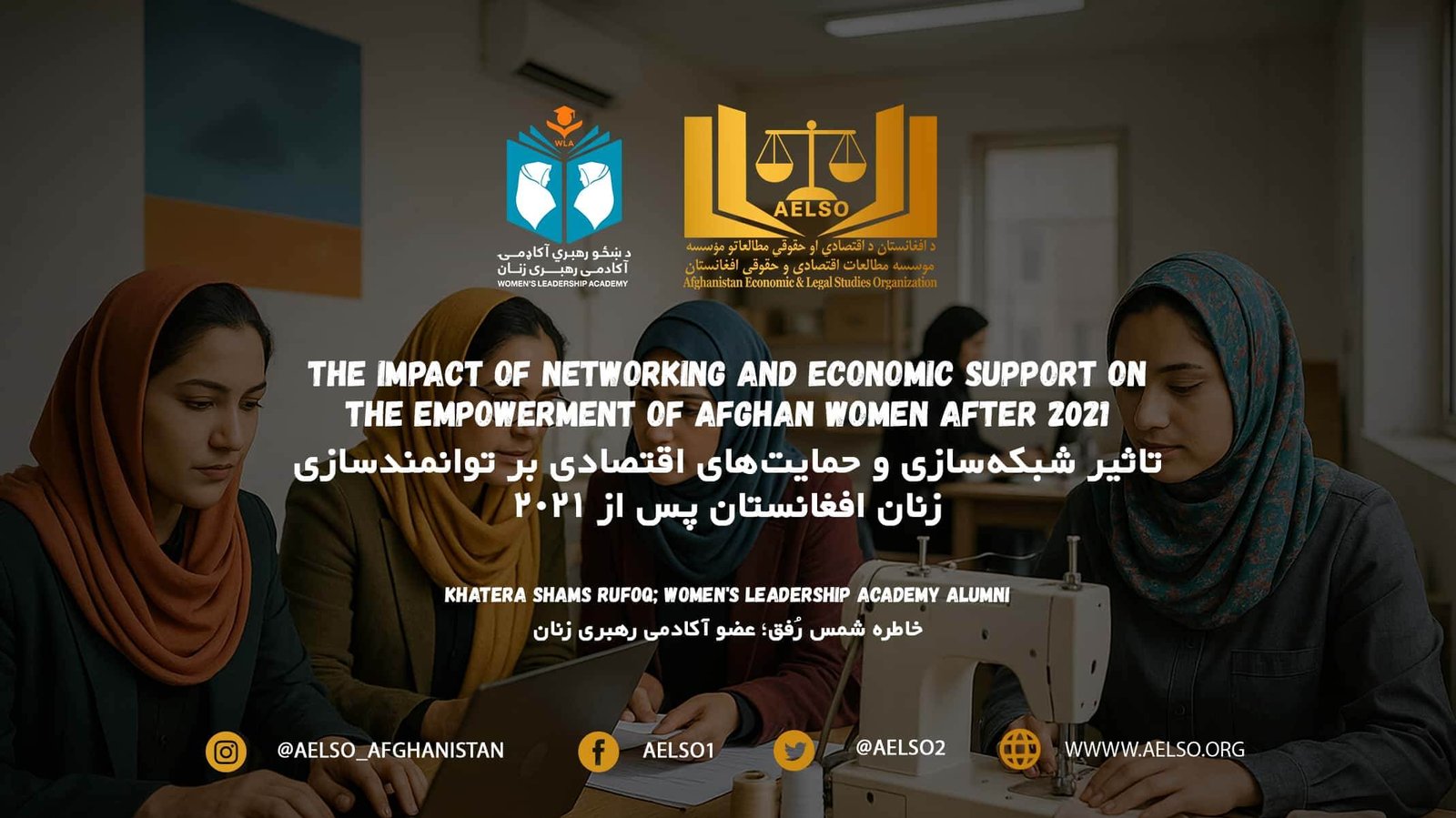
The Impact of Networking and Economic Support on the Empowerment of Afghan Women After 2021
Following the political upheavals of 2021 in Afghanistan, the social and economic standing of women underwent profound changes. Restrictions imposed on education, employment, and civic participation have posed significant barriers to women’s empowerment. Yet, amid these constraints, professional, social, and digital networking alongside targeted economic support from both domestic and international organizations has emerged as a critical pathway for enhancing women’s capacity and self-reliance.
This paper, through a descriptive-analytical approach, explores the key role of these factors in expanding women’s access to economic opportunities, skill development, and strengthening social resilience. The findings suggest that fostering dynamic networks, coupled with consistent financial and advisory support, can pave the way for redefining women’s roles within Afghanistan’s evolving social structure.
The study also offers practical recommendations for women-focused institutions, particularly in crisis contexts, and proposes a framework for effective empowerment in restrictive societies.
Amid significant challenges, Afghan women continue to build, sustain, and grow their businesses. Afghanistan is home to a vast number of talented and resilient women who possess extraordinary potential for economic contribution and social transformation. However, since the takeover in August 2021, Afghan women have faced escalating obstacles including bureaucratic, economic, and cultural constraints alongside deeply rooted gender discrimination.
The latest UNDP report draws on the voices and experiences of women-led businesses and entrepreneurs across the country, providing insights not only into the barriers they face but also the opportunities and entry points for national and international stakeholders to support their survival and growth.
We believe that women’s entrepreneurship is a driving force for economic progress, social development, and gender equality in Afghanistan. Female entrepreneurs do not only create jobs and generate income for themselves and their families; they also contribute to the resilience and recovery of their communities and the country at large.
We hope this study serves as a valuable resource and a catalyst for action among all those committed to supporting women’s entrepreneurship in Afghanistan. This work is dedicated to the Afghan women entrepreneurs.
Keywords:
Women’s Empowerment, Social and Professional Networking, Economic Support, Women’s Participation, Restrictions, Women’s Self-Reliance, Economic Opportunities, Social Resilience, Skill Development, Women-Supporting Institutions, Crisis-Affected Communities.